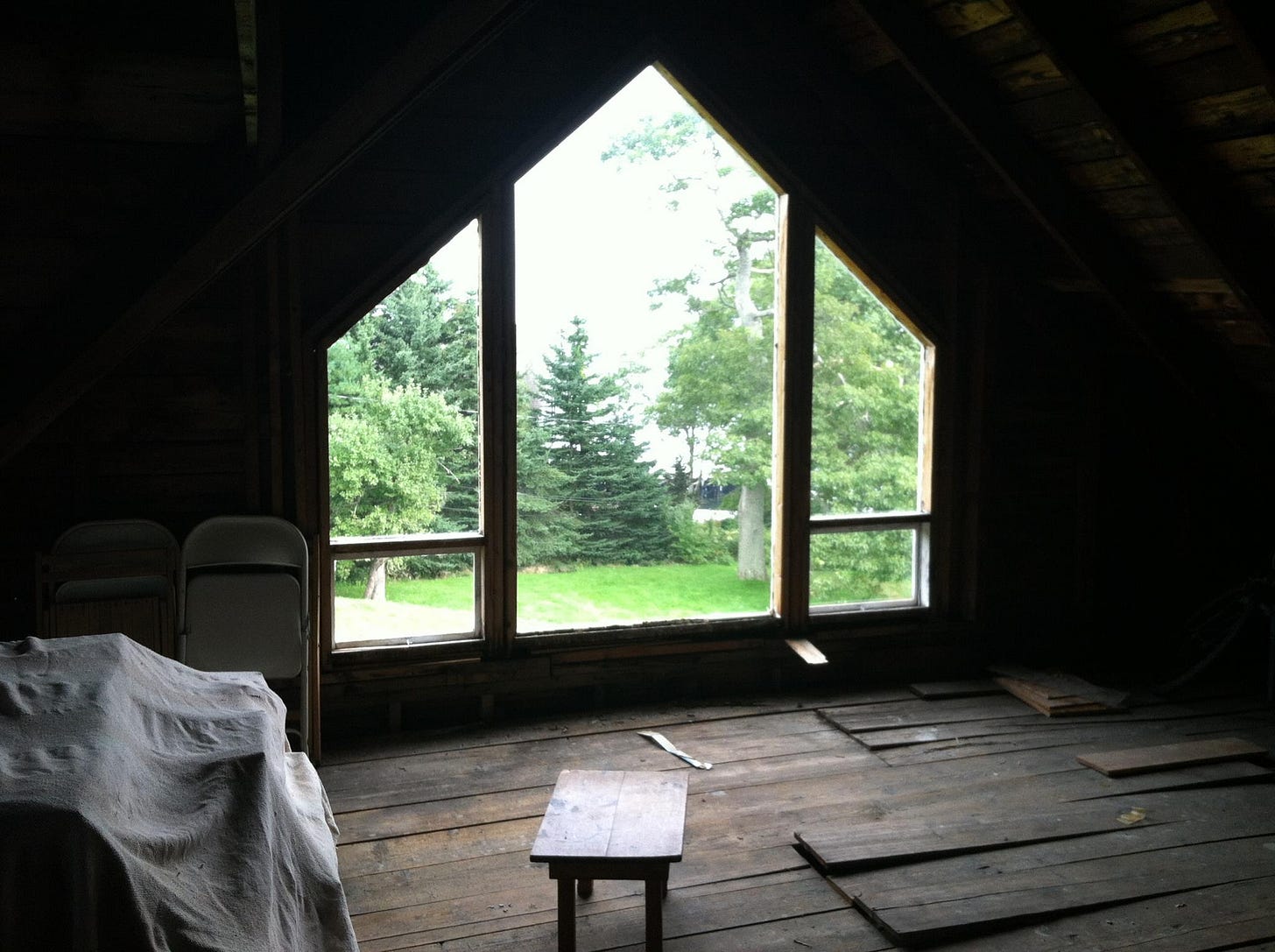Scheherazade – XIII — The Matador
I hated my father’s score-settling letters the way some people hate bullfights. Having my father read them out loud to me was an exquisite torture… but I'm the son of a matador.
My father wrote to master the world, to make it obey him. He enjoyed the expression of himself in writing and particularly in writing letters – his turns of phrase, his unassailability there, his ownership of the last word, the seductive bon-bon of the putdown.
The uglier, bloodier letters were often chivalry skirmishes over humiliations, responding to slights real and imagined. He could stick it back to them in words and an envelope, wind the offender in a twirl of lasso and turn his back to acknowledge the invisible crowd.
He’d make the victim stumble, stick swords in him – or her. He would imagine the brute trying to keep up the fight, its head moving slowly from paragraph to paragraph, glassy-eyed, salivating absently in long strands, tracking the executioner with difficulty because of the enormous blood loss.
My father would always be in control, a step ahead in words and ideas, or he’d change the rules or the entire narrative thread unexpectedly, his complete prerogative as writer. The paper bull was his to play with like a toreador, the pelvis forward, the shoulders back, the red cape flashing ominously just before the last paragraph, the final words delivered as crowd spectacle, tossing away the espada and killing it with a sharp pencil to the neck.
Making it pay.
Making a fool of it.
It.
*
I used to hate those letters the way some people hate bullfights. Having my father read them out loud with such obvious pride was an exquisite torture. They were a spectacle I loathed in my bones, and I made myself a sullen and resentful audience. The better and more cleverly constructed, the more I detested them. I imagined the recipients a paragraph in, scanning for cc’s to attorneys, and throwing them in the “Barry” pile, not even reading to the sharp, tippy-tip endings.
I hated their grandstanding. I hated their over-the-shoulder fuck-you-on-the-run. I hated the bulls bred to charge in a straight line. I hated the whole say-it-to-my-face problem. The toreador pride. The mincing twirl. The accomplishment of nothing.
I hated that they made me feel like a victim for witnessing. I hated them for a million and a half reasons, both adolescent and adult, fair and unfair. The truth is, I might have preferred he’d try to fistfight his opponents or simply to acknowledge that there was a difference.
Maybe just to respect that there was a difference.
*
But I am the son of a toreador.
And, without my father knowing it, and out of his direct line of sight, I too spent my days in those hot fields, left alone, practicing the father’s art, the younger son in the quiet shade of the older.
I wrote my rebel newspaper editorials and my sad stories and my Andalusian songs, buttoning up my black and silver vest, admiring my steely squint in the mirror, testing my paper bulls for ferocity, waving my muleta, arching my back, exposing my vulnerabilities confident that I could protect them at the last moment.
I, too, dreamed of bulls charging down their long dark corridor into my tiny ring where I’d end their lives in an exclamation point. I may see the world through the eyes of my mother, but I write from my father’s Flamenco heart. And like my father, I write for drama and spectacle. And like my father – exactly like my father – I write for the amphitheater.
In his final days, during one of my last visits, my dad sought me out in the shade of the Primogeniture tree, carrying my loose manuscript pages in his hand, walking slowly up our ancient hill, gathering his breath and his final thoughts. Sitting beside me that day and speaking in a simple, clear voice he acknowledged my abilities.
And when he recognized the matador in his younger son, when he handed me his neatly folded red cape and his sharp pencils, well you better believe I accepted them.
On my knees.
Eyes down.




I love how distilled your pieces feel, Adam. I appreciate the work of harvesting and refining that must come before. Here, this matador metaphor works so well.
We start dependent upon our father. We then idolize and seek acceptance. As we near adulthood we realize the need to find our own way. The years pass. You have kids of your own and try to do it better.
And then, one day, if you’re very lucky, your dad (hopefully still around) takes a good long look at his son, tells you he’s proud of you and that he loves you.
One day. 🙏